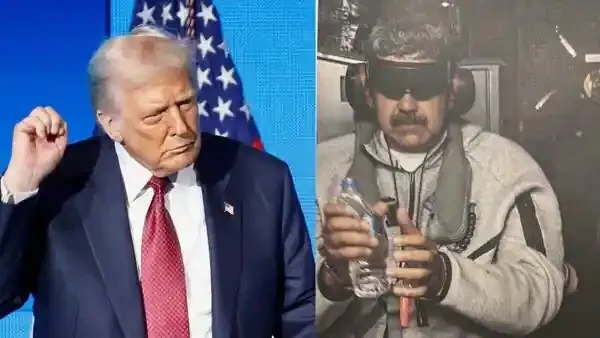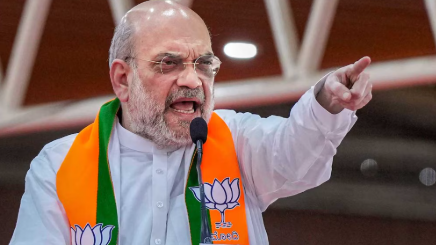

New Delhi: The political temperature in Tamil Nadu has risen significantly following Union Home Minister Amit Shah's direct challenge to Chief Minister MK Stalin regarding language policy implementation. Speaking at the 56th Raising Day celebration of the Central Industrial Security Force (CISF) in Ranipet's Thakkolam, Shah turned the tables on Stalin's consistent "Hindi imposition" accusations.
"Now the PM Narendra Modi government has ensured that the CISF exam can be written in Tamil too," Shah declared, highlighting the Centre's commitment to regional languages. In a pointed message to the DMK government, Shah then challenged Stalin to "impart engineering and medical education in Tamil" in the state, effectively questioning the DMK's practical implementation of its pro-Tamil stance.
The exchange comes at a politically sensitive time, with Tamil Nadu Assembly elections scheduled for next year and the DMK government intensifying its criticism of BJP policies.
Tamil Nadu's resistance to perceived Hindi imposition has deep historical roots. Stalin recently asserted that "Tamil Nadu will not tolerate Hindi colonialism replacing British colonialism," emphasizing that those who attempted to impose Hindi on Tamil Nadu have historically faced defeat or eventually aligned with the DMK.
The 72-year-old CM has accused the BJP of treating Tamil Nadu residents as "second-class citizens" for objecting to the National Education Policy (NEP), particularly its three-language formula which Stalin claims promotes Hindi at the expense of Tamil.
Shah, while acknowledging Tamil Nadu's cultural significance, presented a different narrative. "Be it administrative reforms, attaining spiritual heights, education or the unity and integrity of the nation – Tamil Nadu has reinforced Indian culture in every sphere," the Home Minister said, attempting to position Tamil culture within the larger framework of Indian national identity.
The war of words has real financial implications. The Centre has withheld ₹2,152 crore under the Samagra Shiksha scheme from Tamil Nadu, with Union Education Minister Dharmendra Pradhan indicating that these funds would remain frozen until the state implements the NEP and adopts the three-language formula.
Stalin has written directly to Prime Minister Narendra Modi seeking the release of these funds, characterizing the withholding as "an attack on the Tamil language" – a deeply emotive issue in the state.
Pradhan has repeatedly insisted that the NEP does not impose Hindi, claiming that "education will be based on mother tongue, in Tamil Nadu, it will be Tamil." He attributed the state's opposition to "political ambitions" rather than genuine policy concerns.
"All the languages have equal importance. In Tamil Nadu, few are opposing because of politics," Pradhan stated, dismissing the state's concerns.
The dispute extends beyond language policy to include other educational issues. Tamil Nadu has consistently opposed the National Eligibility cum Entrance Test (NEET), citing alleged irregularities. The state government has passed a resolution urging the central government to scrap NEET nationally and approve Tamil Nadu's exemption bill.
With Assembly elections approaching, both sides appear to be hardening their positions. Shah's visit to Tamil Nadu signals the BJP's intention to make inroads in a state where it has traditionally struggled to gain electoral traction. By focusing on language policy while acknowledging Tamil cultural contributions, the BJP seems to be testing a dual approach of national integration alongside cultural respect.
Stalin, meanwhile, continues to position the DMK as the defender of Tamil identity against perceived Hindi domination, a strategy that has historically resonated with the state's electorate.
As the Centre maintains that the NEP aims to ensure employment for youth across regions, Tamil Nadu's opposition underscores the complex interplay between national educational standardization and regional linguistic and cultural autonomy.
The unresolved funding issue keeps the stakes high, forcing both sides to balance political positioning with practical governance concerns as the election season approaches.